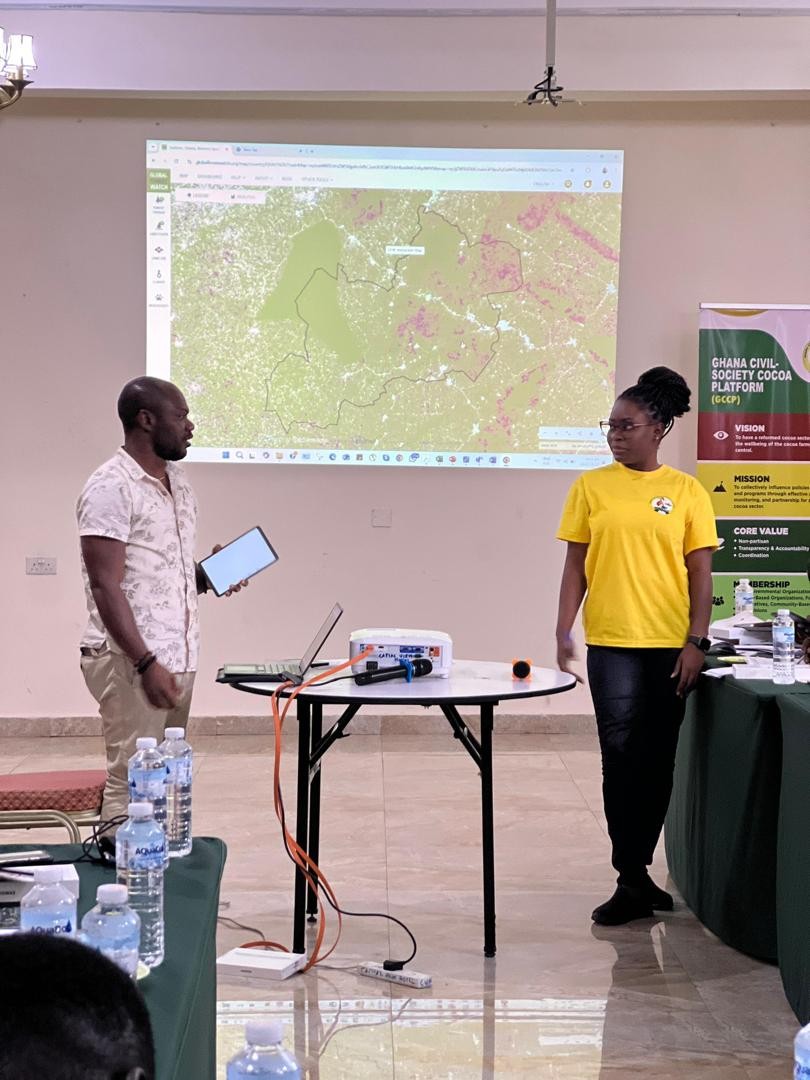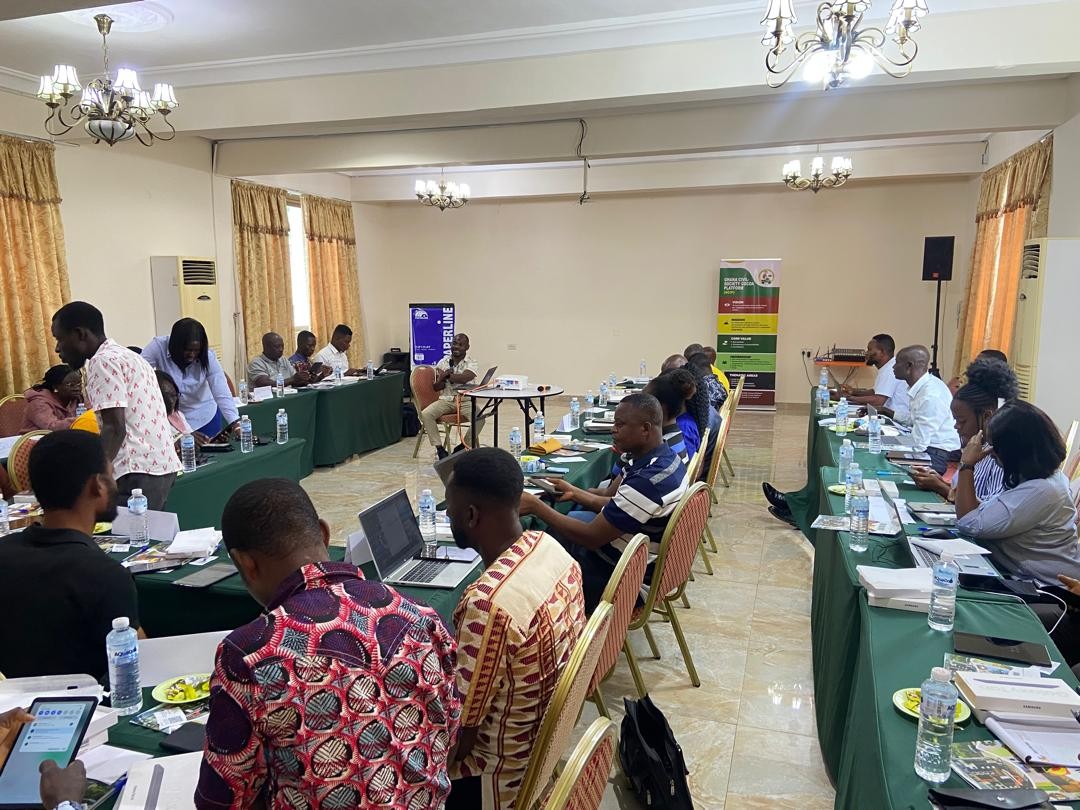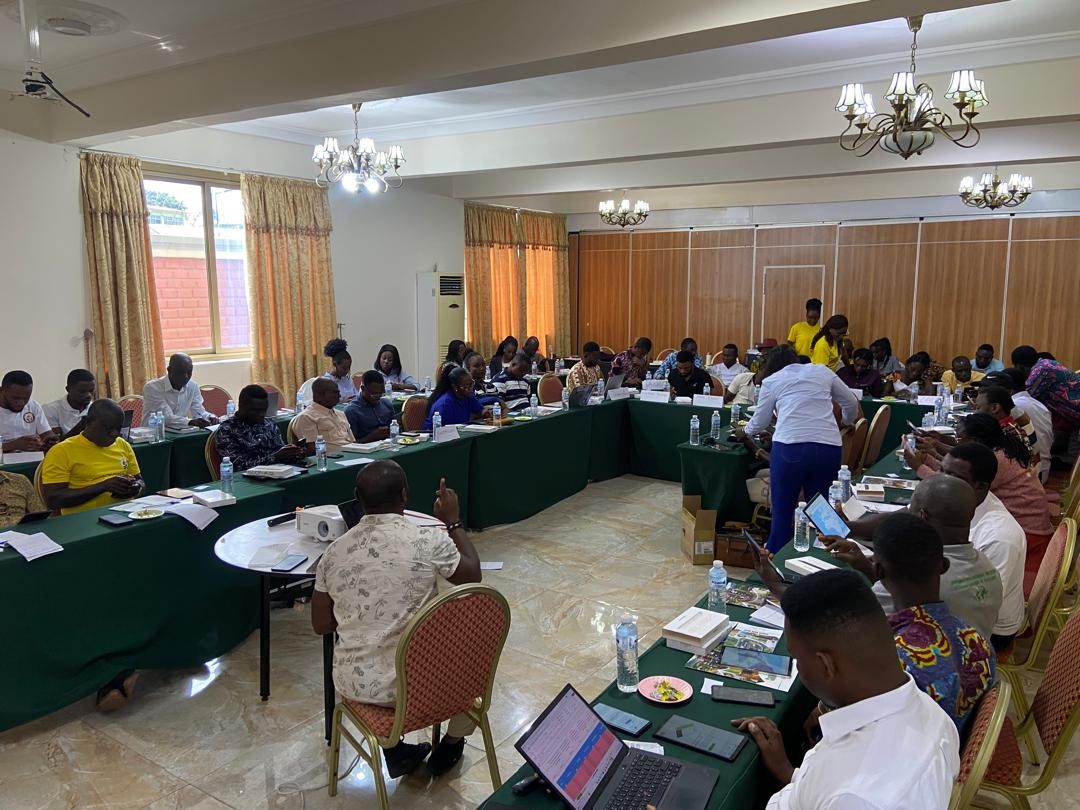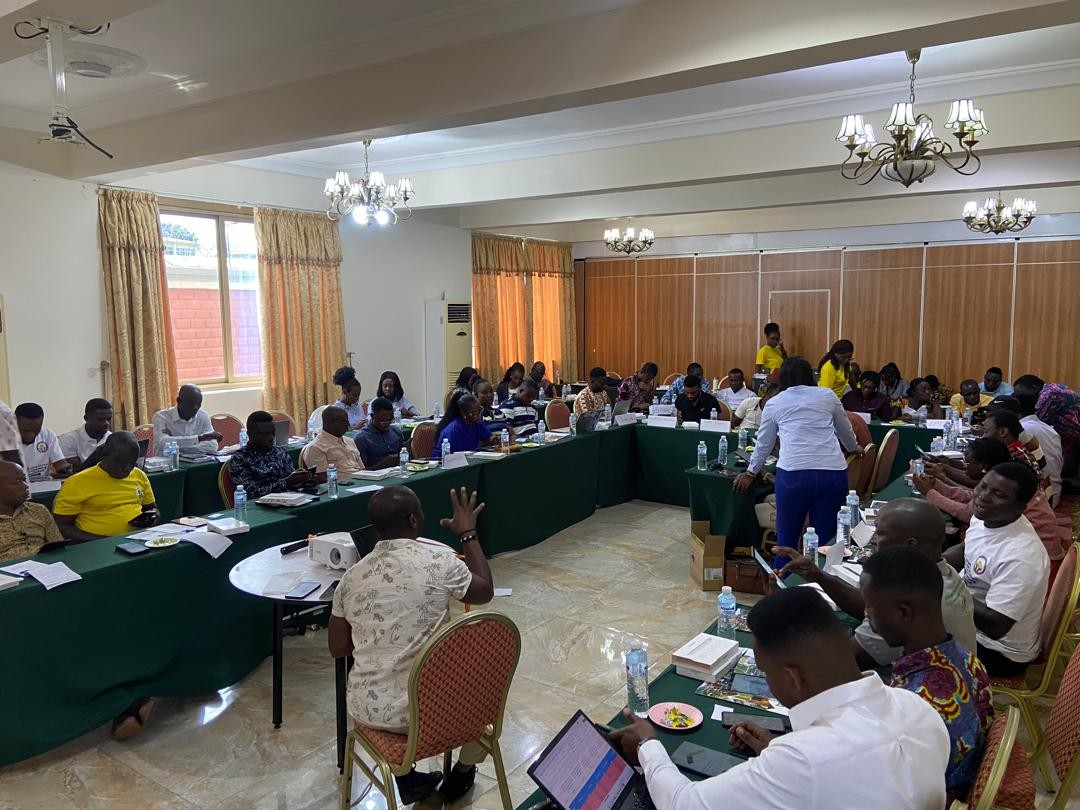
RESCONI Participates In Training on European Union Deforestation Regulation (EUDR) Organized By Send Ghana And Facilitated By The Ghana Civil Society Cocoa Platform (GCCP)
A two-day training session aimed at developing the capacity of potential deforestation monitors across Ghana’s cocoa-growing forest regions was held from July 28th to 29th, 2025, at Koforidua in the Eastern Region of Ghana.
This training brought together 58 participants from Non-Governmental Organisations (NGOs), Civil Society Organizations (CSOs), alongside Cocoa Farmer Cooperatives. The training was organized by SEND Ghana and facilitated by the Ghana Civil Society Cocoa Platform (GCCP).
The key objectives were to train participants on the use of digital monitoring tools to track deforestation in high-risk areas and ensure compliance with the European Union Deforestation Regulation (EUDR). Additionally, it was to develop the competencies and skill sets of the participants to serve as data collectors on the cost of cocoa production and deforestation monitors for an upcoming GCCP initiative. The training further exposed the participants to concepts underlying cocoa pricing mechanisms and incentive structures for deforestation monitoring.
The EUDR aims to ensure that the listed commodities entering the European Union (EU) market, including cocoa, are not associated with deforestation and forest degradation. The regulation has two core components:
1. Due Diligence – Companies must demonstrate that their products are not linked to deforestation and forest degradation and that the products comply with all applicable laws in the country of origin.
2. Traceability – Companies are required to submit geolocation data of the land/plots where the commodities were produced, to verify that no deforestation has occurred since 31 December 2020.
In addition to these, the EU has introduced a benchmarking system, which classifies producing countries as high-risk, standard-risk, or low-risk. Imports from low-risk countries like Ghana may face fewer compliance checks, while those from high-risk areas will undergo more scrutiny.
Overall, the use of satellite monitoring and the needed ground-truthing to detect changes in forest cover around the world and the project districts of RESCONI was really timely and appreciated by the Project Team of RESCONI. This was demonstrated by the use of the Global Forest Watch (GFW) platform developed by the World Resources Institute (WRI). The GFW platform is an interactive online forest monitoring and alert system that uses near-real-time satellite data.




